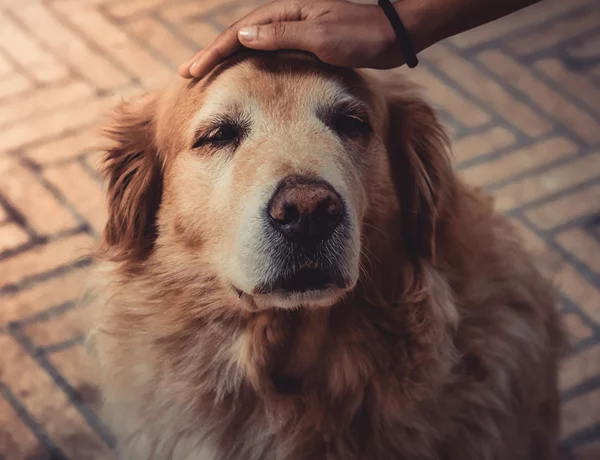Shop At Haya: Your Ultimate Shopping Guide
Discover the best shopping tips, trends, and deals for a smarter buying experience.
Navigating the Golden Years of Fido and Fluffy
Discover essential tips for caring for your aging pets and make their golden years truly shine with love and comfort.
Understanding the Aging Process: What to Expect in Your Senior Pet
As pets age, they experience a variety of changes that can affect their physical and mental well-being. Understanding the aging process in your senior pet is crucial to providing them with the best possible care. Common signs of aging include decreased energy levels, weight gain or loss, and changes in vision and hearing. It's essential to monitor these changes closely, as they can greatly impact your pet's quality of life. Regular veterinary check-ups can help in early detection of age-related issues, ensuring that your pet receives timely treatment and support.
Alongside physical changes, your senior pet may also exhibit behavioral shifts. You may notice increased anxiety or changes in social interactions, such as becoming more withdrawn or less tolerant of other pets. It's important to maintain a routine and provide mental stimulation to help them cope with these changes. Engaging in gentle activities and providing a safe environment can make a significant difference in your pet’s well-being. By adapting your care approach to meet the needs of your aging pet, you can enhance their comfort and happiness during their golden years.

Top 10 Tips for Keeping Your Elderly Dog and Cat Comfortable
As our furry friends age, they may require additional care and attention to ensure their comfort and well-being. Here are top 10 tips for keeping your elderly dog and cat comfortable:
- Regular Veterinary Check-ups: Schedule consistent visits to the vet for health assessments, vaccinations, and dental care.
- Provide a Comfortable Sleeping Area: Create a cozy, soft bed in a quiet spot to give them a peaceful place to rest.
- Maintain a Balanced Diet: Consult your veterinarian for a nutritional plan tailored to their specific needs.
- Stay Active: Engage your pets with gentle exercise, such as short walks or interactive playtime.
- Keep an Eye on Hydration: Ensure they have access to fresh water to prevent dehydration, especially in warmer months.
Continuing our list of top 10 tips for keeping your elderly dog and cat comfortable, here are additional suggestions:
- Adapt Your Home: Make modifications like adding ramps or non-slip mats to help them navigate comfortably.
- Monitor Their Behavior: Pay attention to any changes in their habits or mood, as these may indicate discomfort or health issues.
- Regular Grooming: Maintain their coat and claws to prevent matting and discomfort; older pets may need more frequent grooming.
- Provide Enrichment: Offer stimulating toys and puzzles to keep their minds active while they slow down physically.
- Show Extra Love: Spend quality time petting and cuddling them, as emotional support is crucial for their happiness.
How to Spot Common Health Issues in Senior Pets: A Comprehensive Guide
As pets age, they can develop various health issues that may go unnoticed without careful observation. Regular check-ups with a veterinarian are essential, but knowing how to spot common health issues in senior pets can be a proactive way to ensure their well-being. Look out for changes in behavior, such as increased lethargy or reluctance to engage in activities they once enjoyed. Additionally, monitor their eating habits; any significant decrease in appetite or sudden weight loss should prompt a visit to the vet.
Other signs to watch for include difficulty in mobility, such as stiffness or limping, and changes in bathroom habits, like increased urination or straining to go outside. Changes in coat quality or persistent odors can also point to underlying issues. Identifying these symptoms early ensures that your senior pet receives the necessary care. Keep a journal of any behavior changes to share with your veterinarian, making it easier to diagnose potential health concerns.